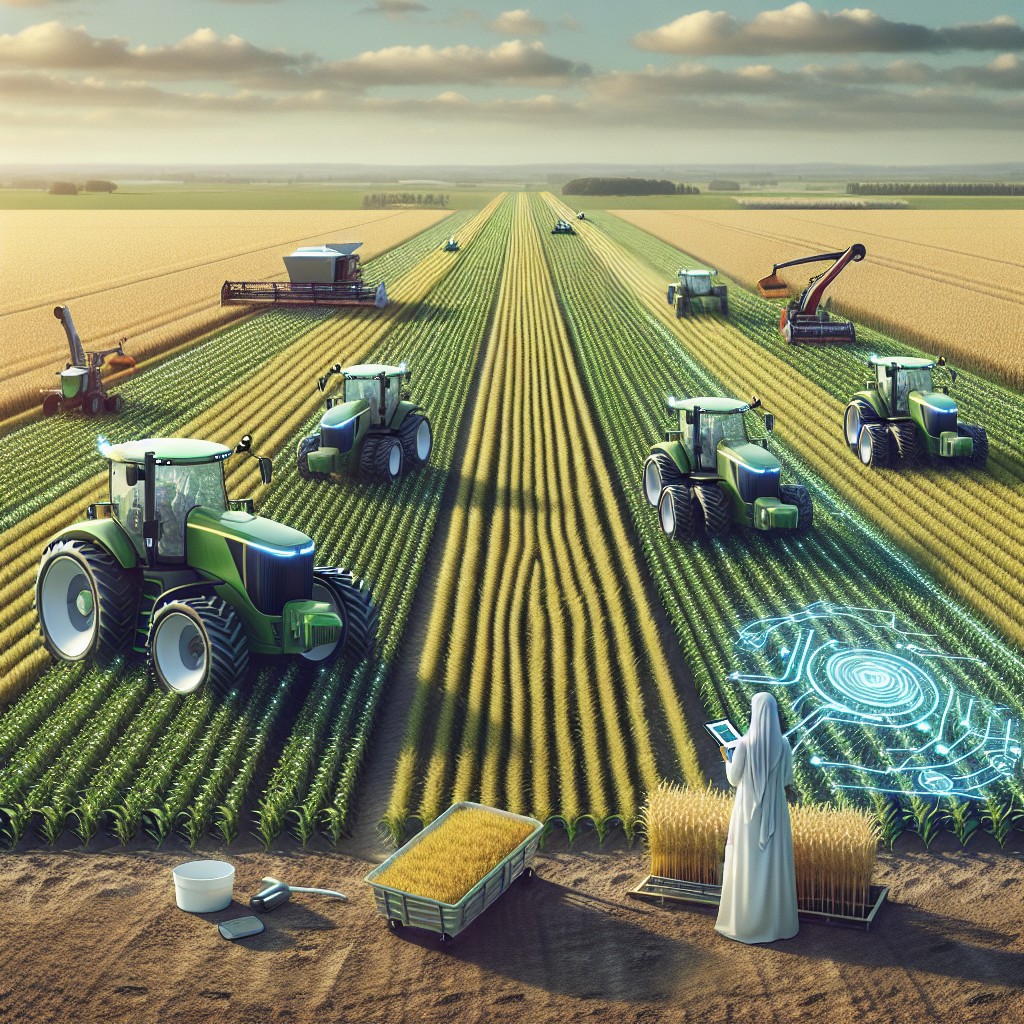Over the past few decades, technology has rapidly transformed the way we live and work. One industry that has seen significant advancements in technology is agriculture. With the help of Artificial Intelligence (AI), modern farming has become more efficient, sustainable, and productive. In this article, we will explore the benefits of AI in modern farming and how it is revolutionizing the agriculture industry.
AI in Farming: What is it?
Artificial Intelligence refers to the ability of machines to perform tasks that typically require human intelligence, such as learning, reasoning, problem-solving, and decision-making. In the context of farming, AI is used to analyze data and make decisions to optimize agricultural processes. This includes everything from planting and harvesting crops to managing livestock and monitoring soil health.
The Benefits of AI in Modern Farming:
1. Increased Efficiency: One of the key benefits of AI in modern farming is increased efficiency. AI-powered tools and technologies can analyze vast amounts of data in real-time to help farmers make informed decisions. For example, AI can analyze weather patterns, soil conditions, and crop health to optimize planting schedules, irrigation, and fertilization. This not only saves time and labor but also maximizes crop yields and reduces waste.
2. Precision Agriculture: AI enables precision agriculture, which involves using technology to target specific areas of a field with inputs like water, fertilizers, and pesticides. This allows farmers to optimize resource use and minimize environmental impact. For example, AI-powered drones can collect data on crop health and growth patterns, enabling farmers to apply inputs only where they are needed. This not only increases productivity but also reduces costs and minimizes the use of harmful chemicals.
3. Sustainable Farming Practices: AI plays a crucial role in promoting sustainable farming practices. By analyzing data on soil health, water usage, and crop rotation, AI can help farmers make informed decisions that reduce environmental impact and promote biodiversity. For example, AI can optimize irrigation schedules to conserve water, or recommend cover crops to improve soil health and prevent erosion. This not only benefits the environment but also ensures the long-term viability of the farm.
4. Improved Yield and Quality: AI can help farmers improve crop yields and quality by providing insights into crop health, disease detection, and pest management. By analyzing data from sensors, drones, and satellites, AI can detect early signs of disease or pest infestations, allowing farmers to take timely action to prevent crop loss. AI can also optimize harvesting schedules to ensure crops are harvested at the peak of ripeness, maximizing quality and market value.
5. Labor Savings: AI can help farmers save time and labor by automating tasks that are traditionally done manually. For example, AI-powered robots can plant seeds, weed fields, and harvest crops with precision and efficiency. This not only reduces labor costs but also allows farmers to focus on more strategic aspects of farming, such as crop planning and marketing.
FAQs:
Q: How is AI used in crop monitoring?
A: AI is used in crop monitoring by analyzing data from sensors, drones, and satellites to track crop health, growth patterns, and pest infestations. This allows farmers to make informed decisions about irrigation, fertilization, and pest control to maximize crop yields and quality.
Q: Can AI help with livestock management?
A: Yes, AI can help with livestock management by analyzing data on animal health, behavior, and performance. This allows farmers to monitor the health and well-being of their livestock, detect early signs of disease, and optimize feeding schedules to ensure optimal growth and productivity.
Q: Is AI affordable for small-scale farmers?
A: While AI technologies can be expensive, there are affordable options available for small-scale farmers. Many companies offer AI-powered tools and services on a subscription basis, allowing farmers to access the benefits of AI without a large upfront investment.
In conclusion, AI is revolutionizing modern farming by increasing efficiency, promoting sustainable practices, improving yield and quality, saving labor, and enhancing crop monitoring and livestock management. As technology continues to advance, the role of AI in agriculture will only grow, leading to a more sustainable and productive farming industry.

